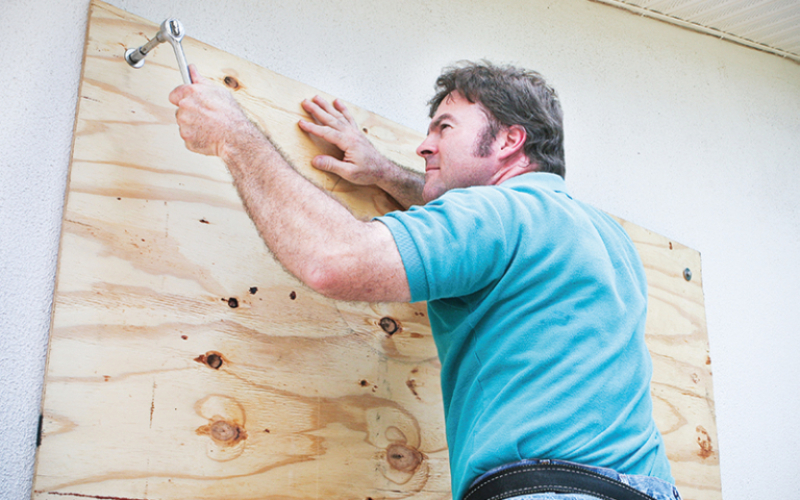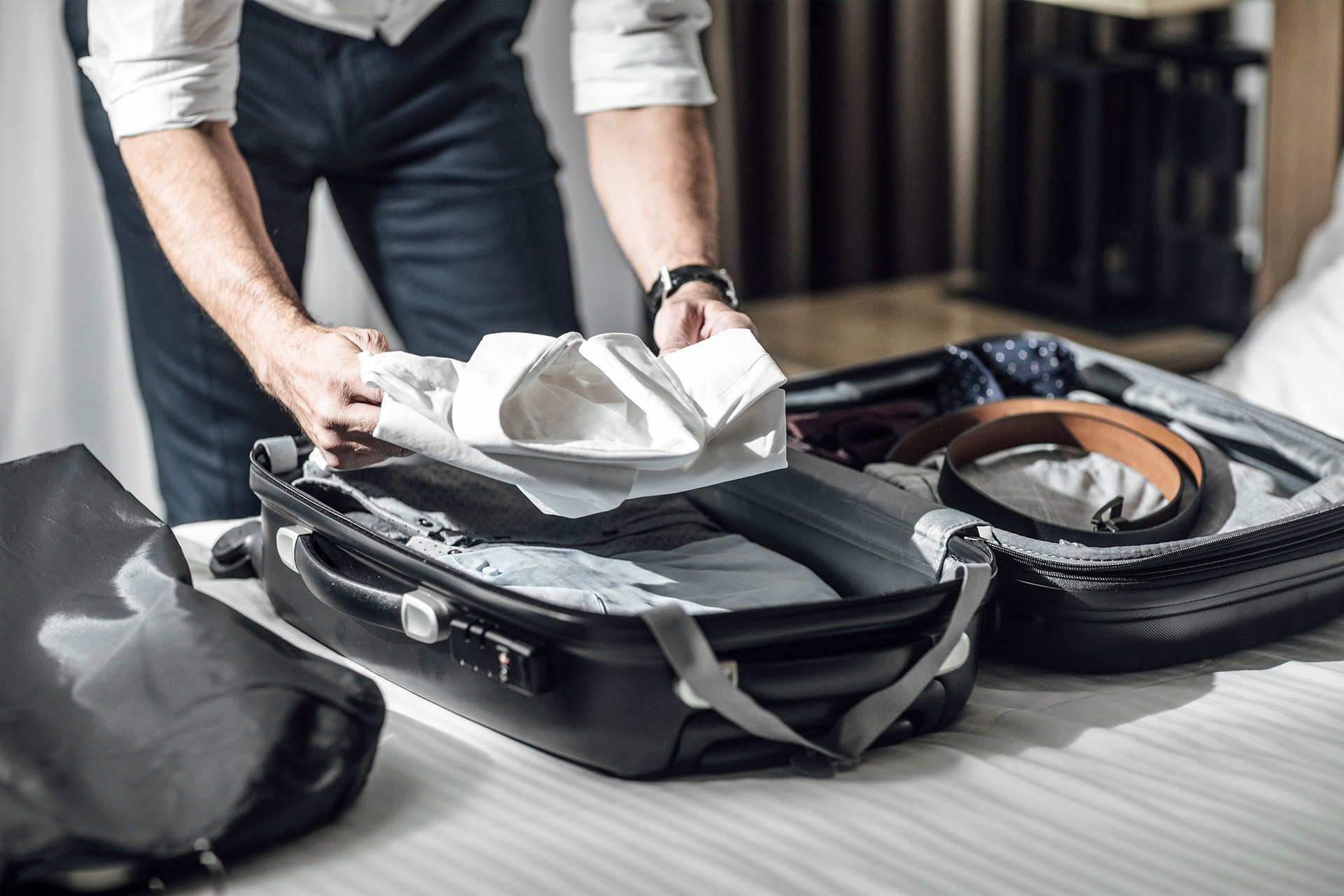What to do in the event of a claim: 10 steps to follow

Fire damage? Water damage? Is your home uninhabitable due to a disaster and you don't know where to start? These 10 steps will get you through the claim process and temporary relocation.
1. Contact your insurer quickly
Explain the loss and its consequences to your insurer. Have your property and casualty insurance contract on hand, which will speed up the process. An expert appointed by your insurer will investigate the cause and estimate the damage sustained, but a description on your part will make the process easier.
In the event of a claim, this expert will assist you with the claims process.
2. Check for worsening damage
When you contact your insurer at the same time, you should try to limit the damage. Be careful not to make any definitive repairs before discussing them with your broker.
In the event of water damage, for example, dry as quickly as possible, to keep mold at bay. If soiled or wet furniture or objects need to be discarded, take photos and keep a descriptive list.
3. Secure the premises and carry out emergency work
To avoid making the damage worse,some emergency work may need to be done. Look for a disaster restoration company.Validate exactly what they'll do and what the cost will be before you give them the go. Likewise, you should always validate with your claims adjuster before proceeding with any work.

4. Check the extent of your coverage
The claims adjuster will explain the protections provided in your home insurance contract and the steps to take. You may be entitled to additional living expenses if, for example, you have to leave your home.
Keep all receipts for expenses incurred as a result of the claim, as they may be reimbursed to you.
5. Help identify the cause of the loss
The expert will validate your initial declaration and may consult specialists. You will help him by providing any information or documents that might help him determine the cause of the loss. In particular, think about recent work or incidents in the neighborhood following excavations or other items that could have an impact.
In the event of a claim, only the expert can confirm the admissibility of your claim.
6. Document your claim
It's your responsibility to properly document and justify your claim. Make an inventory of damaged or destroyed goods, with as much proof of possession as possible (invoices, photos, etc.). Indicate which goods you wish to recover and which seem irrecoverable.
Once again, only the expert can declare a property a total loss. The sooner you hand in your inventary well-documented, the sooner your claim will be processed.
7. Find somewhere to live while work is in progress
What to do in the event of a disaster when you need to relocate temporarily? If your home is uninhabitable following a fire, water damage or other disaster, the "additional living expenses" coverage provides compensation to temporarily relocate you. It covers additional lodging and meal expenses, over and above what you would normally pay at home.
In Quebec City and the greater Montreal area, there's a great housing offer for all situations requiring arelocation of more than 1 month. Various sizes of fully-equipped recent units are available for a true turnkey service.
Find accommodation that will give you peace of mind and allow you to settle your claim comfortably. Be aware that you have the right to suggest to your insurer places where you would like to reside. That way, he or she will be able to work with you to select the best place to live based on your situation.

8. Assignment of receivables: keep control of your compensation
The post-loss contractor or restorer may ask you to sign anassignment of receivables. This allows your insurer to pay him directly for the work he carries out on your property.
This procedure simplifies payment to suppliers (and your life!), but is not compulsory and can make it difficult to control work-related expenditure. Keep some control by asking to inscribe a maximum amount of the cost of the work, on the assignment of receivables.
This way, you avoid signing a blank check and check that the work is done to your complete satisfaction before handing over the final payment.
9. Post-claim settlement: you can negotiate
The claims adjuster has your inventory of damaged goods in hand. He can nowcalculate the proposed settlement according to the protections, limits and exclusions of your policy, including "replacement value" or "depreciated value".
If you have "new value" protection, your goods will be repaired or replaced with a new item of the same nature and quality. If you choose not to repair or replace certain items, you will be financially compensated according to the value the damaged goods had on the day of the loss, thus taking into account their depreciation.
Read the settlement offer carefully and make sure it's right for you. If you have any questions, ask them so that you fully understand the settlement agreement.

10. Payment of compensation
Depending on the damage, payments are made throughout the settlement process, as providers submit their invoices. Pay attention and communicate your dissatisfaction, if any, to your insurer before they pay the service provider.
When it comes to the deductible on your insurance policy, you have 2 options. If the value of the work does not exceedyour insurance amount, your deductible will be deducted from the compensation. The insurer may also ask you to pay the service provider directly.
In conclusion, our final recommendations
We advise you to do your best to assist your claims adjuster quickly with information, details and photos.
Since the insurer has the obligation to restore your property to the same condition it was in before the damage occurred, and to indemnify you within 60 days of receipt of your claim, it's up to you to act promptly!
We recommend that you refuse to move any of your belongings until you have taken inventory and documented their condition, whether they are salvageable or a total loss.
Always carry with you, or easily accessible, your insurer's contact details and policy number (in a photo on your phone or in a voicemail message to yourself, for example).
When looking for your temporary relocation, pay attention tothese features that will ensure comfort and peace of mind:
- Choose a temporary flexible rental that can be modified as work progresses. Some companies offer extensions by the day, week or month, with no lease or long-term commitment required. What's more, make sure you can extend your contract at the same price in the event of unforeseen delays.
- Opt for a recent, upscale, fully furnished and fully equipped apartment. This will make the post-disaster period more pleasant.
- You can be sure of a fast possession and 24/7 service.
- Ask for theinventory list of accessories and equipmentof your chosen accommodation before committing yourself. When you arrive, make a visit to attest to the state of the premises. This way, you'll avoid being billed for breakages or missing items when you leave.
- Check out the company'sGoogle reviews to make sure you're dealing with people you can trust.
Visit Arrow Location to find your turnkey temporary accommodation.




